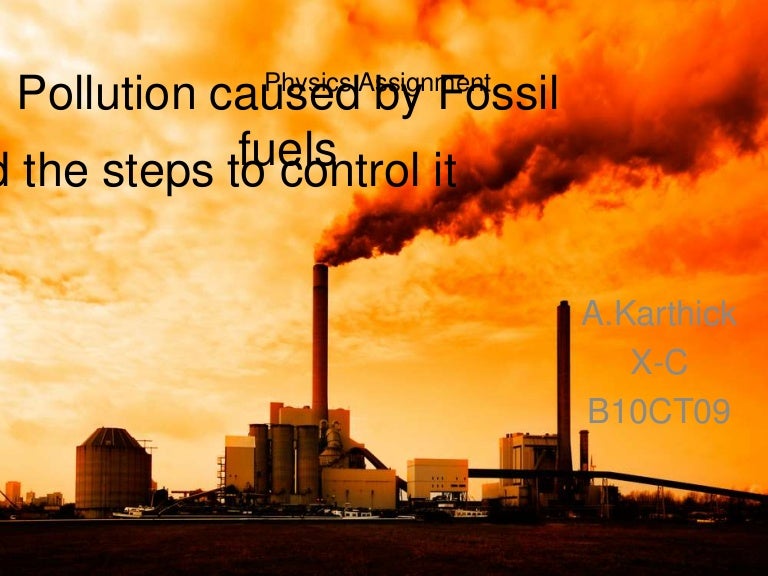Why are fossil fuels harmful for the environment? Are biofuels worse than fossil fuels? How do fossil fuels cause air pollution? Is air pollution a problem associated with fossil fuel?

Fossil fuels include oil , natural gas and coal. When these fossil fuels are burne they release carbon dioxide , methane , nitrogen and particulates into the atmosphere. These upset the natural balance of nitrogen and carbon dioxide in the atmosphere, which leads to smog, acid rain and a greenhouse effect. The Sources and Solutions: Fossil Fuels Cars and trucks release nitrogen into the atmosphere, which contributes to nutrient pollution in our air and water. Airborne nitrogen pollution affects not only the quality of the air we breathe, but also the land and the water.
Acid rain refers to precipitation that carries sulfur and nitrogen compounds from. The burning of fossil fuels to produce energy also releases significant amounts. Pollution Caused by Fossil Fuels Acid Rain. Burning fossil fuels is the largest producer of pollution. Most fossil fuels are burned to turn into energy, and the gasses released into the air by burning, in turn causes air and water pollution.

The release of undesirable substances such as dust, smoke and harmful gases in the atmosphere is called air pollution and these undesirable substances are called pollutants. One of the major causes of pollution of the atmosphere is the combustion of fossil fuels to meet our daily requirements of energy. In addition, fossil fuels pollution occurs as a result of the release of a large number of toxins, such as sulfur dioxide and heavy metals. These pollutants are eating away at the lungs of every person who lives in a car-filled city.
Moreover, our current ways of transportation are far from Eco-friendly, and even thought companies like Tesla look like they are going to instantly change the worl the electric market is responding quite slowly. Of the many environmental and public health risks associated with burning fossil. Yes, burning fossil fuel causes air pollution.
When fossil fuels are burned they release nitrogen oxide into the atmosphere. Which contribute the formation of smog and acid rain. While burning fossil fuel it produce toxic gases. When fuels burned they emits toxins and global warming emission.
Most of this air pollution we cause from the burning of fossil fuels , such as coal, oil, natural gas, and gasoline to produce electricity and power our vehicles. Sulfur dioxide (SO2) emissions , primarily the result of burning coal , contribute to acid rain and the formation of harmful particulate matter. Reducing fossil fuel usage helps protect the limited supply of fossil fuels while decreasing the pollution produced.
When we burn oil, coal, and gas, we don’t just meet our energy needs—we drive. Other forms of air pollution. The Greenhouse effect is caused by fossil fuels and what happens is basically heat is trapped in our Earths atmosphere causing global warming.
Carbon dioxide (CO 2) emissions from combusting fossil fuels are the main driver of global warming. Exposure to air pollution is now a bigger killer worldwide than smoking, according to a new study. The study, from European Heart Journal, estimates 8. So hydrogen is a much better fuel than fossil fuel (coal, oil and natural gas). Some natural gas (methane) leaks out accidentally before it is burnt. This escaped methane is a much more potent greenhouse gas than CO2.

Although it gets less attention these days, combustion also emits volumes of pollutants, which.
No comments:
Post a Comment
Note: Only a member of this blog may post a comment.